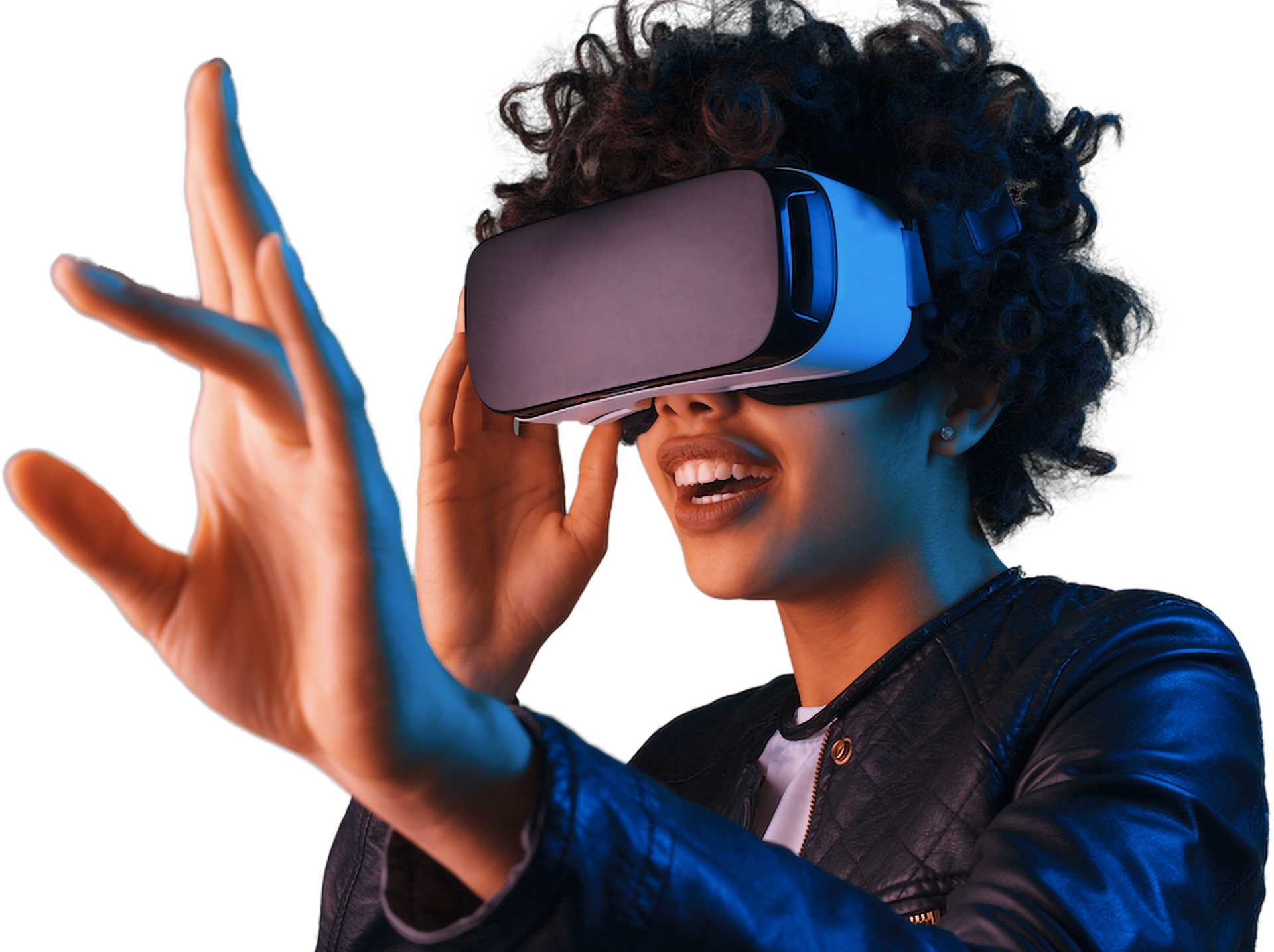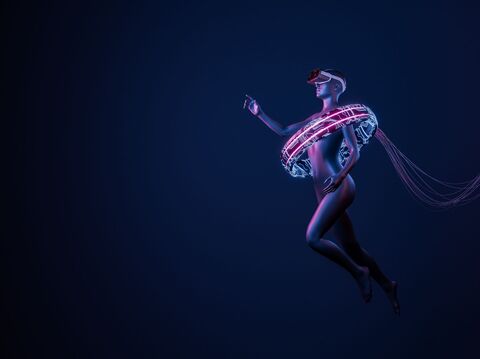Virtual 3D House Tours: Enhancing Buyer Experience

Gone are those days of physically going around different properties before making a final decision. One of the biggest shifts in the real estate market is the implementation of 3D house tours.
Through the 3D house tour experience, the buyers can now have a better view of every room in the house without being present physically. This technology provides a full and natural representation of a home to help the potential buyer make the right decision without physically visiting the house. It is not only time-saving but also improves the overall buying experience.
This blog will explain what a 3D house tour is, how it differs from a house tour in general, its benefits, and future applications.
What is a Virtual House Tour?
A virtual house tour is a process of giving an online tour of a house so that users can visit the house online. This becomes achievable using image processing techniques that help in combining photographs and videos to produce a brand that is integrated and real.
When it comes to a 3d virtual house tour, the viewer can walk from one room to the other, zoom in and out, and even get the sense of the design of the house. It is more profound than a usual photo tour, which allows obtaining a better understanding of the space.
Types of 3D House Tours
There are several types of 3D house tours. Each offers different levels of detail and interactivity. Let's check them out:
1. Basic 3D Tour
A basic 3D tour is a limited virtual tour of a given space. This tour allows people to explore and interact with 360-degree images in every room. They can be free to look at the environment, but its possibility of navigating through the space may be more restrained.
This type of tour is good for smaller properties or if the goal is to just get an initial impression. It allows potential buyers to get a basic idea of the size and design of the room while not overwhelming themselves with details.
2. Interactive 3D Walkthrough
An interactive mode of presenting a building layout in a 3D virtual environment is more engaging than the normal view. This way viewers can ‘walk through’ the property as if it were a real physical space.
This type of tour enables you to take pictures, access all spaces, and get the reality of the arrangement and interconnection of the rooms.
This is notably helpful for spacious and/or elaborate homes or an entire property. Buyers get the time to move from one area to another, revisit one section, and even get the general layout of the house.
3. Virtual Reality Tour
A virtual reality (VR) tour is the most sophisticated form of a 3D tour home experience. By putting on a VR headset, users can experience the property in an immersive way. This gives an impression of virtually stepping into the house and going through each room and gazing at the windows, all in a way that looks as if you are there.
This could be very advantageous for premium or luxury homes or for buyers who cannot physically inspect the property. It has a way of providing detail and involvement that makes the event almost lifelike.
4. Guided 3D Tour
A guided 3D tour is a variation where the viewer is taken on a preset path through the property. It’s like a virtual open house where users can sit back and watch as the tour moves from one room to another.
This type of tour is ideal for showcasing specific features of the property and ensuring that viewers see the highlights. It’s also useful when you want to control the narrative and ensure that potential buyers focus on the key selling points.
5. Customizable 3D Tour
A customizable 3D tour allows users to choose which areas of the property they want to explore first. This type of tour is highly flexible and user-driven. It’s perfect for buyers who have specific interests or who want to focus on certain parts of the home.
For instance, a buyer interested in the kitchen can start there and spend as much time as they like before moving on to other rooms.
3D Walkthrough vs. 3D Tour
While both real estate 3D walkthroughs and 3D tours offer immersive viewing experiences, they are slightly different. Here’s how:
-
3D Walkthrough
A 3D walkthrough usually provides a planned visit round all parts of the house. It may be a video that orients the viewer and zooms the camera through the interior and exterior parts of the home. It is an informative approach but unfortunately not very engaging.
-
3D Tour
A 3D house tour is fully interactive in the sense that it allows the user perform more than one action throughout the tour. Users can navigate independently in the property at a customised pace setting.
They can go to areas of interest, revisit rooms, and even zoom in on parts that they like. This level of interactivity makes it a more exciting option to the potential buyers as compared to traditional media.
How Does a 3D Virtual House Tour Benefit You?
Whether you are a buyer or seller, a real estate 3D virtual tour streamlines the process in many ways and has numerous benefits like:
1. Convenience
A 3D house tour allows buyers to view multiple properties without leaving their homes. It saves time and effort. Buyers can explore different homes at their own pace, whenever it suits them. This convenience makes it easier to compare properties and shortlist the ones that meet their needs.
2. Better Understanding
A 3D tour gives a much clearer idea of what a property looks like. Buyers can see the exact layout, room sizes, and how different spaces connect. It is more informative than static photos. It helps buyers understand the structure of the house and see if it matches their expectations.
3. Increased Interest
Homes that offer 3D tours often generate more interest. Potential buyers are more likely to explore these properties in detail when they can do so online. The interactive nature of 3D tours makes the experience more engaging, encouraging buyers to spend more time looking at the property.
4. Reduces Unnecessary Visits
By offering a detailed view of the property, 3D tours help filter out buyers who may not be truly interested. It means only serious buyers are likely to schedule in-person visits. It saves time for both buyers and sellers and reduces the hassle of hosting multiple showings.
5. Global Reach
A real estate virtual tour opens up the market to international buyers. People from anywhere in the world can view a property without having to travel. It also expands the pool of potential buyers, making it easier to sell properties to a broader audience.
For sellers, this means reaching more interested buyers, which can lead to quicker sales.
Is 3D Virtual Property Tour the Future of the Real Estate Industry?
Real estate is going digital and 3D house tours are bound to become a priority. As technology continues to evolve, these tours will become even more advanced, offering greater detail and interactivity.
By exploring properties online, buyers are empowered to make more informed decisions. Sellers’ benefit from it as it opens a window to expose their properties to a larger market.
In the coming years, we can foresee that 3D tour homes will be included in the list of common real estate features. With the rising popularity of virtual and augmented reality, such tours will also be improved to be more lifelike and interactive.
Also, due to the rising need for remote and virtual services, 3D house tours will become all the more useful to buyers and sellers.
Wrapping Up
3D house tours are no longer a luxury; they are becoming a necessity in the real estate industry. They provide a level of detail and interactivity that traditional photos and videos cannot match. Whether you’re a buyer looking for your dream home or a seller wanting to attract more interest, a real estate virtual tour is the way forward.
As this technology continues to evolve, it will only become more integral to the property market, enhancing the experience for everyone involved. Learn more about 3D house tours with GrowthJockey today!
FAQs
1. How do 3D tours work?
3D tours utilize a ramp of photographs and videos that are compiled to generate a seamless experience. It provides a user with an interactive approach of walking through the property, as if they were walking through it in person.
2. How to make a 3D virtual home tour?
To take a 3D home virtual tour, you require a camera, 3D tour software, and skills in either stitching photos yourself or hiring personnel to do so. Most of the real estate agents seek professional services to achieve the best outcomes.
3. What is the difference between a 3D tour and a 360 virtual tour?
A 3D tour allows for full interactivity, letting users move through the property at their own pace. A 360 virtual tour offers a panoramic view of each room but may not allow much movement.
4. What is a virtual tour of a house?
A virtual tour of a house can be described as an internet-based presentation of a property using linked images, pictures, and short videos.
5. How much does it cost to get a virtual tour made?
The cost of a virtual tour can vary depending on the size of the property and the level of detail required. Costs vary from several hundreds to several thousands pounds.








